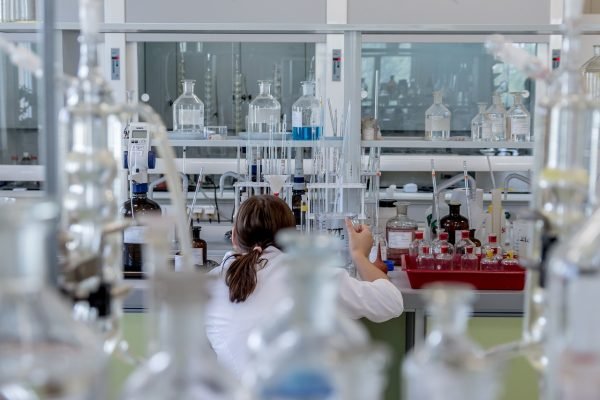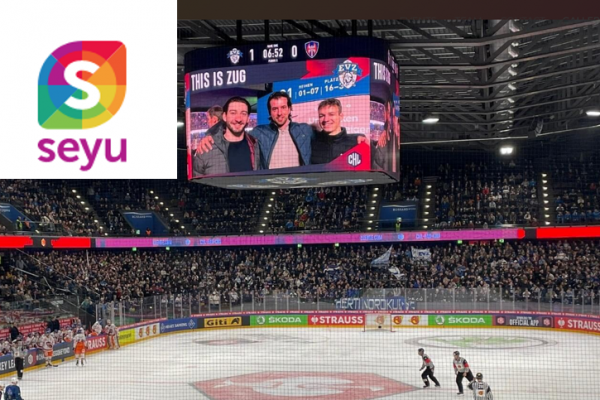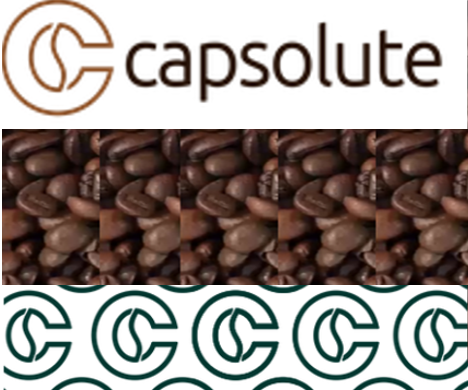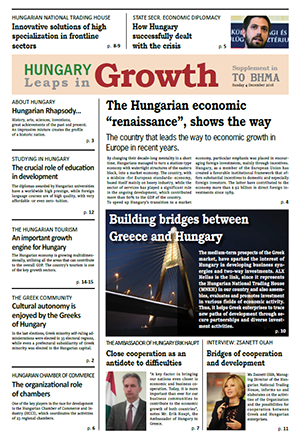Monthly bulletin ‘Economy & Trade in Hungary ” (3rd vol.) of the Office for Economic and Commercial Affairs of the Embassy of Greece in Budapest.
Ι. Hungary’s economy
The European Commission’s report on the Hungarian economy is encouraging.
According to the report, the Hungarian economy is growing steadily, private consumption and exports have increased, labor market indicators have improved and have implemented important measures to make it possible and attractive the go to the primary labor market for workers employed in public projects. In addition, both the deficit and the debt have been reduced. The European Commission predicts that the improvement of the Hungarian economy will continue in the coming years. Investments in productive sectors of the economy are projected to grow by 10% in 2017 and by 5% in 2018. The combination of low interest rates and growth of corporate loans is expected to stimulate further investments. Exports are projected to maintain the growth trend with approximately 5.5% annually, while Hungarian exporters will increase their market share.
- GDP rose in 2016: The economic growth rate was around 2% in 2016 and is expected to increase to 3.2% in 2017 and to 3.5% in 2018 (mainly due to increased financial inflows from the EU).The IMF’s report for Hungary
According to a panel of the IMF that visited Budapest between February 23rd and March 8th, the budget deficit for 2017 was estimated at 2.6% of the GDP, slightly above the Government’s target of 2.4%. The IMF in the relevant report, proposes budget cuts, mainly because the economy of Hungary works to its full potential. More specifically, the IMF proposed as a target, a shortfall of 2.2% in 2017. Also, they advised the Hungarian Government to improve the business environment to fight corruption, increase transparency, reduce the tax burden and simplifying the tax system.
- Decrease in investments in 2016According to the Statistical Office of Hungary, investments decreased by 20% in 2016. Especially, in the last quarter of 2016, the decrease reached 24% compared to the respective 2015 period. The Government attributes the decrease in periodic factors and mainly to the fact that during the fourth quarter of 2015 large amounts of EU programmes flowed into the country. Ιn more detail, in the fourth quarter of 2016 there was a decrease by 18% in machinery equipment investments and a reduction of 30% in the construction sector. A smaller decrease of 5.9% occurred in large companies (employing more than 50 employees) and a significant decrease of 71% occurred in investment government agencies. In total for 2016, the reduction for the investments in machinery and equipment reached 6.6% and in construction 32%. There was an investment growth in the financial sector (17%), industry (7%) and on retail sales (10%).
- The State Guarantee of Hungary remains in category of investmentsTwo out of three major international rating agencies, S&P and Moody’s, evaluated anew the economy of Hungary (on 24/2 and 6/3 respectively) and set Hungary in the BBB category where the country’s bonds are considered investment. The positive economic indicators, fiscal policy and balanced accounts of the country led the agencies to submit positive reports. However, the external debt of Hungary must be dealt with caution. More specifically, the S&P in the relevant report makes a positive reference to the large current account surplus and to the moderate budget deficit. These two factors which allow the country’s economy on a steady course, despite the relatively high external indebtedness.
- Reduction of the special fuel taxFrom April 1st, there is a reduction on the special fuel tax in order to compensate for the increase of international oil prices in the first quarter of 2017. This became legally possible in the summer of 2016 (relevant legislation was voted). The same law stipulates that the special will rise when the international oil prices fall. Specifically, the average Brent crude oil price for the period 1 January – 15 March 2017 was estimated at $55,105 per barrel, when for the previous quarter was $49.76. Consequently, the tax will be reduced by 5 HUF per liter of petrol and 10 HUF per liter of oil. If the average Brent price falls in the following quarter, the tax will increase accordingly.
- Current account surplus for 2016According to recent figures from the Central Bank, the current account surplus of Hungary for 2016 rose to €5,524 billion from €3,693 billion in 2015. However, the financial capacity of Hungary for 2016 is decreased by €2 billion compared to the previous year, given that for the same period the capital surplus decreased from €5,144 billion to just €589 mil. The sharp decline in the surplus is due to the fact that the capital inflows from the EU fell from €5,273 billion in 2015 to €1,058 billion in 2016. Hungary’s trade surplus for 2016 touched the €859 mil, while the surplus reaches €938 mil, services included.
- Increase of the growth rate of retailAccording to official final figures from the Statistical Office of Hungary, the volume of retail in January 2017 scored an annual increase of 4.8%. More specifically, food sales rose by 3.4%, all other by 3.7% and fuel sales by 6.7%. At current prices, the value of the trading volume in January reached 699 billion HUF.
ΙΙ.Business – Commercial News
General News
Statements on the future of Europe by the leaders of the Visegrad countries
In the framework of the meeting of the Visegrad countries (Warsaw, 2.3.2017), Prime Ministers of the countries “Visegrad Four” (Czech Republic, Hungary, Poland and Slovakia), worked out common positions on the future of the EU, which spearheaded the Rome Conference (25/3/2017). More specifically, the countries of Visegrad, commenting on proposals of the European Commission, have opposed a ‘multi-speed’ Europe and in their joint declaration of the Prime Ministers of the four countries argued that any further policy action for EU integration should be rejected in favor of the “Europe of 4 Nations”. It was also argued that the proposals for implementing the energy Union, should be included and the particular characteristics of c-m (obviously reflects Hungary’s position on the issue of fixing the prices of energy products – Hungary supports the c-m right to set the prices themselves).
- Commercial ‘war’ between Hungary and the Heineken brewingA trade war between Hungary and the “Heineken” brewing has launched, because of the conflict between the interests of Hungarian beer “Lixid Project” in Romania and the multinational “Heineken”. More specifically, the Deputy Prime Minister Zsolt Semjén and the head of the Office of the Prime Minister, Mr János Lázár, submitted a proposal to Parliament for passing a law that would prohibit the use of symbols of tyranny for commercial purposes. The packaging of the Heineken products bears as a symbol red five-pointed star, which according to the Hungarian Government’s argument refers to the oppression suffered by the Hungarian people by the Communist regime.However, legal circles within and outside the Government highlighted the complexity and difficulty of the project, stressing that it will not be possible to accept the legal text with the above characteristics, nor the Constitutional Court Hungary, nor the European Court of human rights. Meanwhile, the Deputy Prime Minister Zsolt Semjén said that the Hungarian Government is ready to support the producer ‘Lixid Project’ in Romania, with government funding. However, the two parties, “Lixid Project” and “Heineken”, agreed to stop the litigation and to reconcile.
More specifically, “Heineken”, in order apparently to avoid creating negative image in the Hungarian market, agreed to allow the small brewery “Lixid Project” the use of the name “Csiki”, despite the fact that the Romanian courts found that the specific brand name refers to the brand “Ciuc” that Heineken uses. However, the head of the Office of the Prime Minister, Mr János Lázár, said that the Bill to ban the commercial use of symbols of tyranny will not be withdrawn, but has pushed for treatment and consultation in the European Commission, that lasts about six months.
- Hungary wants a reduction of VAT on Internet access servicesThe Hungarian Finance Minister, Mr. Mihály Varga, after the end of the Ecofin Council meeting (Brussels, 21/3/2017), said that Hungary would insist that the EU eventually allows the reduction of the VAT for the provision of Internet access services. Indeed, during the Ecofin and at the discussions on the proposal to reduce VAT on electronic publications (e-Publications), Hungary said it would accept the proposal only under the condition that there will be a proportional reduction of VAT regarding the Internet access services.
- “Ikarus” will construct α bus running on LNG”Ikarus” company plans a mass production of buses that will use as fuel, liquefied natural gas (LNG). According to the President of the company, Mr. Széles, the Hungarian Government supports the plans of “Ikarus” for construction of a new factory with production capacities of such buses, as well as the purchase of new LNG-buses. “Ikarus” has already approached the State transport company BKV and interurban transportation company also state “Volán” and is negotiating the sale of LNG-buses. The design of LNG-and bus production plans have been completed and the presentation of the first (pilot) bus will be at the international motor show in July or August.
- Incubator for start-upsThe company BnL Start Partners, launched the first company incubator in Hungary. With a total capital investment of €2 cm, the company will assist young entrepreneurs to turn their business ideas into action. The largest capital that will be invested per startup company will not exceed €200,000.
- The Hungarian Government is planning a series of measures aiming at the retail stores of foreign multinational corporationsThe head of the PM Office, Minister to the Prime Minister, Mr János Lázár, in collaboration with the Minister of economy, Mr. Mihály Varga, submitted a proposal to implement a package of measures against foreign multinationals. More specifically, large car parks will be taxed, large billboards outside the multinational retailers and advertising costs will be reduced, the number of compulsory recruitment staff with higher salaries will increase and finally, the discount stores of multinationals will be banished from areas classified as world heritage sites.According to the proposal, measures will be taken gradually in order not to cause reactions and possible penalties from the European Commission. It is estimated that taxing the parking lots means a revenue of HUF 20 billion annually for the state funds. Advertising costs should not exceed 0.5% of the revenue of stores, the number of staff should be commensurate with the revenue, while on Sundays wage will double. The proposal is expected to be submitted to Parliament. Mr. Lázár, at a press conference, hastened to clarify that measures are not directed against foreign multinationals. He also featured the taxation of open parking lots as a measure to protect the environment, while he did not fail to blame the multinational food chains Aldi and Lidl that they promote and smuggle inferior products on the market of Hungary and the former Eastern European countries. He added that these companies will be required to give explanations and to reveal the composition of the products they deal, in order to prove that the markets of the former Eastern States, are not of less quality in comparison to markets of Western Europe.
Fewer Mergers and Acquisitions in 2016
Fewer mergers and acquisitions took place in Hungary in 2016, but the total value of the transaction reached $1.6 billion, an increase of 6% compared to 2015. The largest number of mergers and acquisitions occurred in the industrial sector. The service delivery area follows and then the real estate. 54% of mergers and acquisitions involved purely Hungarian companies.
- Increased wages by 10% in JanuaryAccording to figures of the Hungarian statistical Ooffice (KSH), mixed and net monthly wages increased by 10% in January, compared to the respective month of 2015. The 15% increase in the minimum wage and the 25% wage increase for skilled workers along with the wage increases in the public sector have led to an overall increase in income of workers and officials. In a statement, the Finance Minister of Hungary, Mr. Michali Varga, pointed out that the increase is due both to government agreement-trade unions and the reduction in employers ‘ contributions from 27% to 22%.
- Increase wages in state enterprisesTthe Government of Hungary allocated 40.5 billion HUF from the 2017 State budget in order to increase salaries of SOE employees, so as to bring about balance in wages between the public and private sectors. An amount of 86.1 billion HUF will be committed for the same purpose by the budget of 2018 and more than 112.5 billion HUF in 2019 and 2020. Already, according to a statement from the Deputy Minister of development, Mr. János Fónagy, the first increase of 13% will be paid in April and retroactively from January. In 2018, the raise will be by 12% and 5% in 2019. In Hungary 220 companies operate where the State has a majority holding. Out of these, 79 do not have the necessary funds to increase wages so the Government allocated the relevant funds from the State budget.
- Hungary participates in the Asian Infrastructure Investment Bank (Investment Bank Asian Infrastructure-AIIB)At the recent meeting of the Board of Directors of AIIB, request accession of 13 countries were approved (for the first time since the establishment of the Bank), including Hungary’s. As you know, the Asian Infrastructure Investment Bank is an international financial institution established by the initiative of China and supports investment and infrastructure development in the Asia-Pacific region, as well as projects implemented at other continents but help networking with Asia. With the accession of 13 new countries (Hungary, Afghanistan, Armenia, Belgium, Canada, East Timor, Ethiopia, Fiji, Hong Kong, Ireland, Peru, Sudan and Venezuela), the Bank counts 70 members. Flat comparison, Asian Investment Bank (initiative of USA and Japan), founded in 1966, comprises 67 members.
- Fear for lack of European fundsAccording to statements of the Deputy Prime Minister, Mr Nándor Csepreghy, the Hungarian Government wants to expedite the process of European funds absorption, fearing possible lack of resources due to Brexit. According to Mr. Csepreghy, Britain’s withdrawal from the EU and the consequent reduction in contributions for the financing of European projects, will create a deficit which, if not covered by additional contributions of c-m, will be possibly covered by unused funds of c-m. In order to speed up the process of absorption of funds, the Hungarian Government will allow beneficiaries up to 30% budget overrun for approved projects.
- International Agreements-Partnerships
- Possible investment from Mitsubishi in HungaryThe Japanese car industry is exploring the possibilities of establishing and operating a new engine factory in Central Europe. Candidate countries for the investment of the €200mil are Hungary, Romania and Slovakia. It should be noted that in May 2016, Nissan Group acquired 34% of Mitsubishi. According to press sources, Mitsubishi is negotiating with the Hungarian Government for favorable tax treatment of investment and a possible state subsidy.
- Hungarian-Slovak cooperation in the electricity sectorThe Hungarian Minister for Foreign and Trade, Mr Péter Szijjártó and the Slovak Minister of economy, Mr Peter Kazimir, signed recently in Bratislava, an agreement for the construction and operation of cross-border power lines, with a total length of 64 km and cost of €80 mil.. The project is expected to be completed by the end of 2020. The Agreement signed by representatives of the national electricity companies of the two countries.
ΙΙΙ International Exhibitions
- MACH-TECH, 9-12 May 2017. International Industrial Exhibition.
The exhibition is expected to draw approximately 386 exhibitors, of which 111 will be foreign companies from 19 countries and approximately 15,000 visitors from 40 countries. Alongside the MACH-TECH will also be held the “Industry Days”, with specialized thematic in high technology, innovation, etc.
Organizers: Hungexpo C.Co. Ltd. Address: H-1101 Budapest Albertirsai út 10. Letters: H-1441 Budapest, Pf. 44. Tel: (+36 1) 263 6000, Fax: (+36 1) 263 6098 E-mail: iparnapjai@hungexpo.hu E-mail: machtech@hungexpo.hu.
- BALATON BOAT SHOW 2017, 12-14 May Nautical Salon of the Balaton Lake
Boat show for yachts and watersport.
Organizers: Hungexpo C.Co. Ltd. Address: H-1101 Budapest Albertirsai út 10. Letters: H-1441 Budapest, Pf. 44. Tel: (+36 1) 263 6000, Fax: (+36 1) 263 6066
E-mail: boatshow@hungexpo.hu












